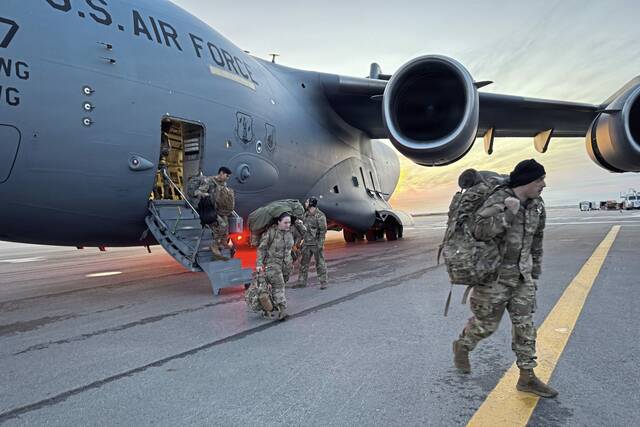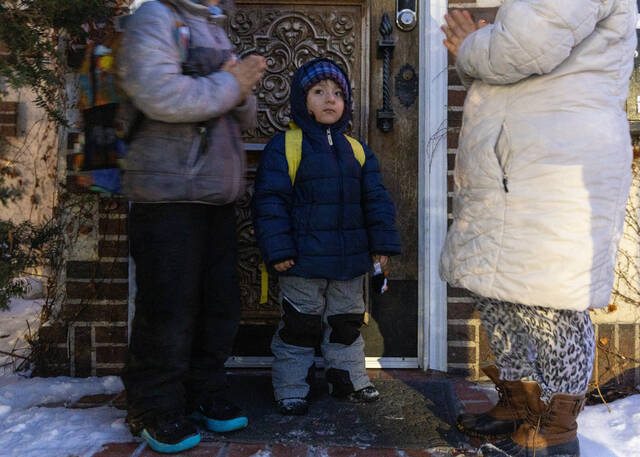Roughly 46,000 full-time U.S. military members are without pay during the federal government shutdown despite President Donald Trump’s push to pay active duty troops.
The impacted service members, known as dual-status technicians, are full-time employees of the National Guard and other military reserve units who under federal law must wear their military uniform to work daily, must maintain part-time military membership and must meet military standards. According to the fiscal 2025 defense policy bill, the military currently has roughly 46,000 dual-status technician positions distributed across crucial functions like helicopter and plane maintenance, technology support, weapons repair and administrative support for isolated units.
The catch? Dual-status technicians are, technically speaking, civilian employees of the Defense Department despite the inherently military aspects of their jobs. And during the ongoing federal government shutdown, the Pentagon’s civilian employees are going without pay, though many of them (including most technicians) must stay on the job due to the vital national security nature of their work.
Dual-status techs — deemed to be “rare birds” by the Supreme Court — often work shoulder-to-shoulder with active duty members of their units, receiving different pay and different benefits for similar duties and risks. Their active peers also received a full paycheck on Oct. 15 after Trump directed Defense Secretary Pete Hegseth to shift about $6.5 billion in funds to make payroll. (The Pentagon did not immediately respond to an inquiry from USA Today.)
Advocates for the technician community who spoke with USA Today expressed frustration over what they consider to be an unfair arrangement.
“It’s not fair, obviously — you show up at any given unit, you can’t tell who’s who. (Active duty troops and technicians) are literally indistinguishable,” said Retired Army Maj. Gen. Francis McGinn, who is president of the National Guard Association of the U.S. and former top general of the Massachusetts National Guard. He fears that paying techs “slipped through the cracks” amid the chaos of the shutdown.
McGinn added that furloughing or not paying dual status technicians risks harming the National Guard’s readiness. The organization’s aviation assets (which are largely kept flying by technician mechanics) often receive no-notice missions such as stranded hiker rescues or natural disaster responses.
The legislative director of the Association of Civilian Technicians, a union representing dual-status technicians, told USA Today that the Trump administration’s moves against federal workers have “demoralized” this crucial subset of the military.
“These people are hired to do a job, and they’re trying to do it well,” said ACT’s Les Hackett. “Then you have people that are basically telling them that their jobs aren’t needed and they’re all lazy bums.”
Hackett, who retired as both a National Guard member and dual status technician, and McGinn argued the pay disparity is just the latest manifestation of pay and benefits gaps for the employees. Dual status techs, unlike their peers, are ineligible for the military’s health insurance (until 2030), don’t accrue valuable time-based education benefits like the post-9/11 G.I. Bill, and can’t receive VA disability treatment or payments for injuries suffered outside of drill weekends.
The former general, McGinn, contended that the simplest solution to the immediate problem is for Congress to pass a continuing resolution and negotiate a full-year defense spending bill.








